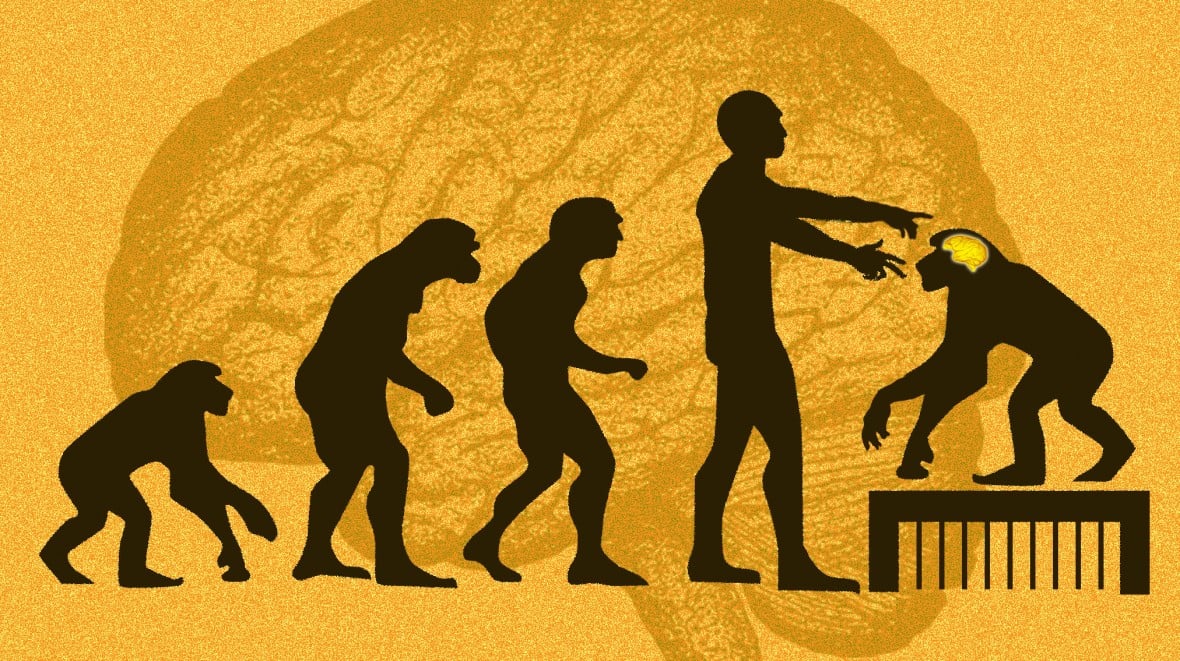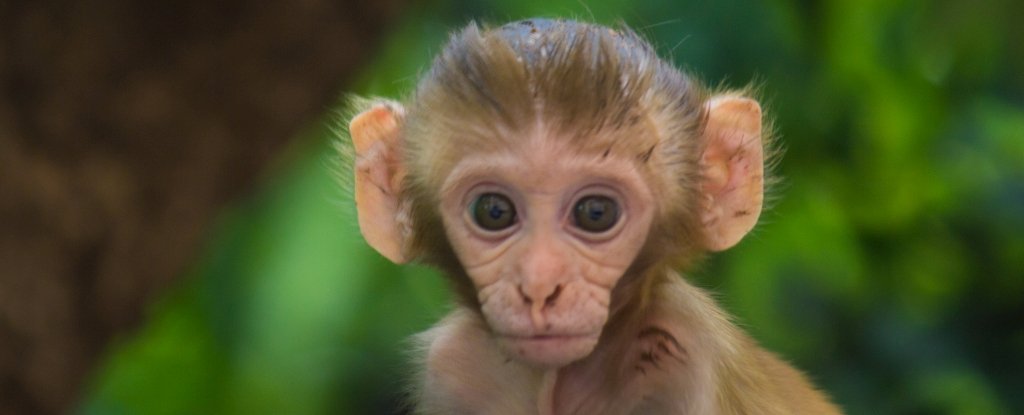Transgenisis : In The Name Of Science
"[Six of the monkeys died; the five survivors] exhibited better short-term memory and shorter reaction time [in comparison to wild-monkey controls]."
"[The findings] have the potential to provide important -- and potentially unique -- insights into basic questions of what actually makes humans unique."
"[The monkeys] did not manifest an enlarged brain size."
Scientific team, Kunming Institute of Zoology, Chinese Academy of Sciences
 |
| Ms. Tech; Evolution: Wikimedia commons |
"Now we have created this animal which is different than it is supposed to be. When we do experiments, we have to have a good understanding of what we are trying to learn, to help society, and that is not the case here."
"So, yes, it's morally risky to move towards humanizing primates, particularly when we are talking about the brain."
Martin Styner, computer scientist, University of North Carolina
"I certainly would have thought you would have had to have a reasonable expectation of high benefit to human beings to justify the harms that you are going to have for intensely social, cognitively complex emotional animals like monkeys."
"It's not clear that this kind of research has an reasonable expectation of having any useful application for human beings."
"If you took Einstein as a baby and you raised him in the lab he wouldn't turn out to be Einstein. If you're actually interested in studying the cognitive complexity of these animals, you're not going to get a good representation of that by raising them in labs, because they can't develop the kind of cognitive and social skills they would in their normal environment."
Letitia Meynell, associate professor, department of philosophy, Dalhousie University, Halifax
 |
| (Robbie Ross/iStock) |
Morally and ethically fragile those experimental research events most certainly are. But the kind of bold approach that some Chinese scientists bring to their work effectively shrugs off the very concept of moral responsibility inherent in the type of experiments they choose to pioneer. Experiments guaranteed to bring the scientific world's attention to their doorstep. That old Hollywood mantra that even bad publicity is good publicity seems to apply here.
Philosophers and ethicists reacted with revulsion when two little girls were born in China who had been genetically modified. He Jiankui had announced his editing of the DNA of human embryos to make the babies resistant to HIV, and so the twins were born and the world of science recoiled. Unchastened, Mr. He was prepared to continue his experimental research in CRISPR technology, until his own university berated him and the Chinese government, displeased at the unwanted attention and notoriety appeared to have spirited him away out of the public spotlight.
This time it was a team of scientists at the Kunming Institute of Zoology at the Chinese Academy of Sciences who announced their ground-breaking transgenic operation resulting in 11 rhesus monkeys with human copies of a gene known as MCPH1, described as a vital gene for brain development and brain evolution involved in a process known as neoteny, the delaying or slowing of an organism's development.
/cdn.vox-cdn.com/uploads/chorus_image/image/63396067/monkey_GettyImages_609576976__1_.0.jpg) |
In this instance, a baby's brain developing post-birth with an abundant presence of MCPH1 -- particular to human babies -- not in non-human primates. The result of which, according to the report published in the journal National Science Review, the monkeys' brains developed within a like timeline as would a human brain, representing the first such attempt to study the genetic basis of human brain origin with the use of transgenic monkeys.
Dr. Styner, hugely critical of the experiment and its outcome, explained his role in the research as an expert in medical image analysis for which expertise he had been approached by the researchers, in 2011. He was not involved in the science of the project, but did contribute his expertise on how best to perform the analysis of their MRI data. "At the time, I did not think deeply enough about the ethical consideration." The generation of transgenic monkeys began troubling him the more he gave it thought.
:no_upscale()/cdn.vox-cdn.com/uploads/chorus_asset/file/16026374/monkey_clones_GettyImages_1087871028.jpg) |
"This was the first attempt to understand the evolution of human cognition using a transgenic monkey model", explained Bing Su, geneticist at the Kunming Institute of Zoology, stating his interest in testing other genes related to brain evolution, inclusive of one called the "humanity switch", in recognition of its presumed role in human intelligence. Mr. Bing informed the journal Nature that he was interested in experimenting with FOXP2, a gene expressing a protein linked to the development of speech and language."I don't think the monkey will all o a sudden start speaking, but will have some behavioral change."
"The use of transgenic monkeys to study human genes linked to brain evolution is a very risky road to take."
"It is a classic slippery slope issue and one that we can expect to recur as this type of research is pursued."
James Sikela, geneticist, comparative primate studies, University of Colorado
:no_upscale()/cdn.vox-cdn.com/uploads/chorus_asset/file/16026383/mother_monkey_GettyImages_689873468.jpg) |
Labels: Bioscience, China, Experiments, Geneticists, Monkeys, Research, Transgenesis

0 Comments:
Post a Comment
<< Home